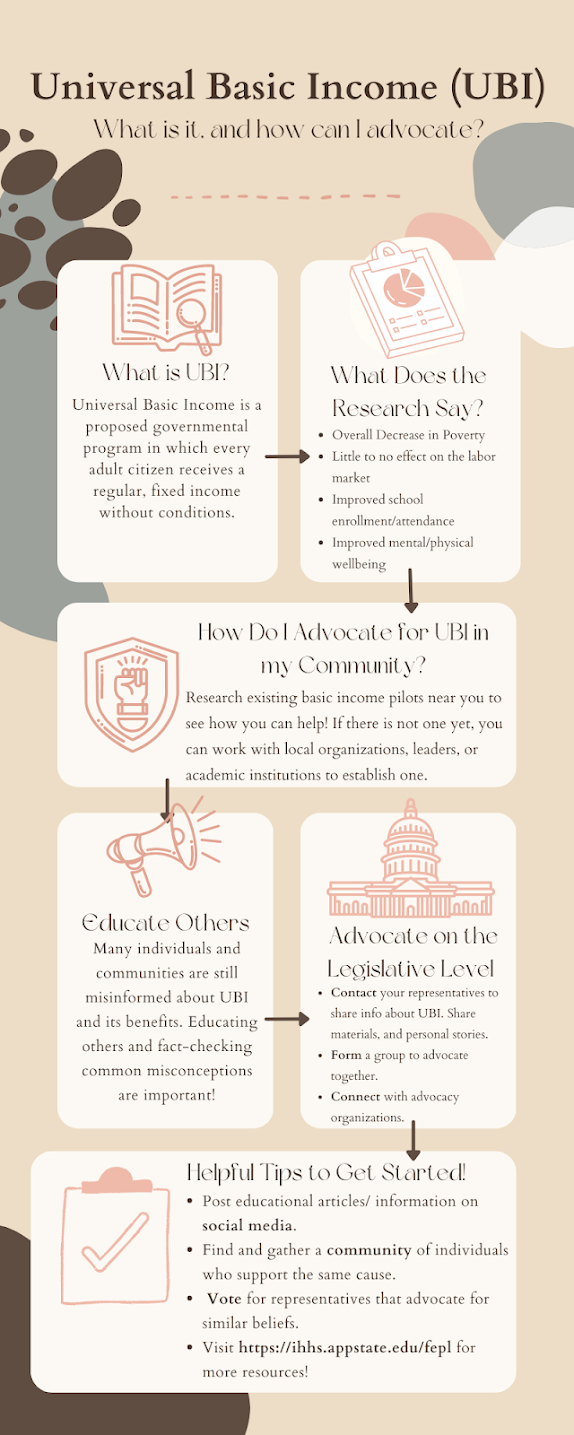What is Universal Basic Income?


Universal Basic Income (UBI), sometimes referred to as basic income, or guaranteed income, was made popular in current conversation by 2020 Democratic Presidential candidate, Andrew Yang. Providing a guaranteed income for citizens is not a newfound concept, rather, discussions of regular, guaranteed payment to all citizens are found throughout history. The creation of the concept of UBI was fueled by the need to rethink our current welfare state. With heightened levels of inequality, and fear for the future of welfare, research into the effectiveness of UBI is growing each year. Therefore, although the topic of UBI is growing in news and politics, many are still unaware of the basics.
There are currently many different models of UBI, and most models include a few common components. These commonalities include, the money being provided to individuals, usually on a monthly basis. The money is distributed as cash and is non-conditional. This means that the money is provided to all citizens regardless of economic status, and would be directly given to citizens on an individual basis, rather than by family. This money could be utilized in any way the individual chooses, and would not depend on factors such as employment status, or the ability to pass a drug test. The premise of UBI is that the government will supply each individual with enough money to cover their basic needs and is supplemental to a citizen’s income. Supporters of UBI believe that this would give individuals greater psychological and financial security.
Current research suggests that UBI has promise when it comes to improving rates of poverty, and increasing access to necessities such as adequate healthcare and food. For many low-income individuals and families, our current welfare system contains gaps and strict requirements that limit their ability for upward mobility. UBI would create stability within a family by providing them a guaranteed, non-conditional amount that takes the financial burden off struggling individuals.
Criticisms of the concept of UBI exist primarily in politics, and include the upfront cost of beginning such a program and believe there is a possibility of inflation that may occur. Many also believe that guaranteed payments from the government would increase work disincentives. Most of the criticisms of UBI are opinion pieces, and research suggests that implementing UBI would be beneficial, and would not disincentivize citizens like suggested in criticisms.
There are currently many UBI pilots occurring within the United States. These pilots are evaluating how UBI could affect society as a whole. Existent research from these projects has been positive. At the Family Economic Policy Lab, we are evaluating two pilots. Our first project titled HudsonUP is ongoing in Hudson, New York. HudsonUP provides $500 per month to 128 low-income residents in Hudson. In Her Hands is our second pilot, taking place in three sites throughout Georgia. In Her Hands focuses on researching the effects of providing a basic income averaging $850 per month for two years to 655 low-income Black women. As research from these pilots continues we can better understand the long-term effects that implementing UBI would have on the nation as a whole.
To follow our journey:
Comments
Post a Comment